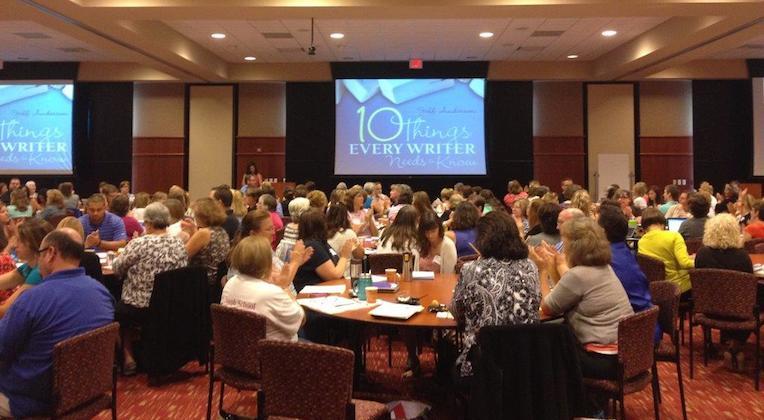Milwaukee’s Catholic schools believe they have discovered an efficient way to enroll, and meet the needs of, more students with cognitive learning challenges. This push for inclusiveness has focused on energizing educators’ own interactions—prompting them to collaborate locally and across the Archdiocese. Participants see an emerging cadre of teacher-leaders ready to benefit all the students in their schools.
“If we are more mindful about organizing ourselves, we can do better at the Catholic mission to serve all kids,” said Brenda White, associate superintendent of schools for the Milwaukee Archdiocese. Her initiative to establish “learning support teams” in every school—and to spread their insights among more than a hundred elementary and secondary schools—helps accomplish the mission, she said. “It arose out of that desire to do a better job meeting the needs of all God’s learners.”
Over the past few years, principals have been identifying and engaging teachers at their school who have demonstrated special skills for serving children with special needs. These teacher-leaders team with a few colleagues—plus specialists in areas such as counseling and wellness that some Catholic schools may be able to afford. These teams attend system-wide gatherings a few times each year where they share experiences and help shape strategies, and experts “train the trainers” who then go back to their schools to impart skills among their fellow educators.
Schools in the Archdiocese have been able to enroll more students with cognitive learning challenges, and they have also empowered and challenged some of their best educators, according to those guiding the process. In a field where much great pedagogy goes unnoticed behind classroom doors, identifying and learning from teacher-leaders has performed the essential function of “de-privatizing our best practices,” to use a phrase from Martin Scanlan, associate professor at Boston College’s Lynch School of Education.
Scanlan, previously at Marquette University, worked with the Milwaukee Archdiocese in establishing the “learning support team” concept before he moved to Boston. He said other (arch)dioceses, including Chicago, Kansas City-St. Joseph, and St. Louis, are adopting variations on the theme of greater collaboration, lifelong learning, and the dissemination of best practices; they are “changing the narrative” which once assumed Catholic schools simply turned away children with exceptionalities.
While the learning support teams may not be as ambitious as some other diocesan strategies, such as hiring numerous certified experts or securing special donors to meet special-education costs, Milwaukee's pursuit of inclusion is distinguished by an extra layer of extraordinary collaboration, according to White and Scanlan.
The associate superintendent, principals, and teachers have received the guidance of professors from five local Catholic colleges and universities that have schools or departments of education, White said. Marquette, Cardinal Stritch University, Marian University, Mount Mary University, and Alverno College formed the Greater Milwaukee Catholic Education Consortium, whose website says it works with the archdiocese to build “a new Catholic school model of inclusion and excellence.”
Marquette’s Office for Mission and Ministry has adopted the consortium as a natural fit.
This duo of collaborative structures—the network of teams transcending school boundaries to encourage teacher-leaders, along with academia’s array of champions for Catholic education uniting their several campuses with interest in the endeavor—makes the Milwaukee Archdiocese a uniquely promising setting, said Jennifer Maney of Marquette’s Office of Mission and Ministry.
Maney, who holds a Ph.D. in educational leadership, serves as institutional coordinator for the consortium. She joined White in a presentation about these synergies at the National Catholic Educational Association’s annual convention in April. She said the evolution of insights among educators and school leaders will continue, empowering students and teachers.
“What started out as an initiative directed at special needs … has shifted to a focus on good teaching that impacts all students’ learning regardless of their level of learning,” Maney said. The archdiocese will collect data and continue to gain experience with learning support teams—including how to select team members and how to optimize their effectiveness. She added that the institutions of higher education can both supplement the learning and disseminate the success stories.
Chris Gordon, formerly at Cardinal Stritch University and now an advocate among those who led the development of schools’ learning support teams, reports one top school’s data showing robust achievement gains among students in general, not only those in special-education settings.
Milwaukee’s collaborative efficiencies could expand their impact from language arts to math instruction and also could help inner-city Catholic schools serve disadvantaged students from all backgrounds, Gordon predicted. “We’re all called to serve God and his children,” she said. “Now we just have to put the models in place so we can be most effective in doing so.”
One immediate lesson of collaboration for all to learn from Milwaukee’s teacher-leaders is the need for every teacher to let his or her unique gifts shine forth among colleagues, White pointed out.
“You can’t just teach behind closed doors anymore,” she said. “It blocks the ability you have within your building and within your school system to learn best practices from each other.”
 Alliance for Catholic Education
Alliance for Catholic Education
